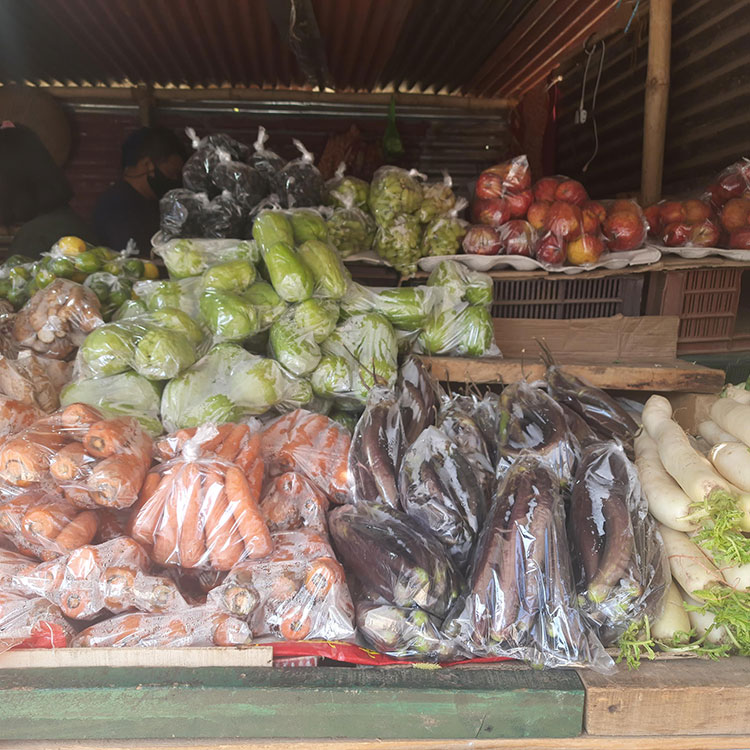Chhimi Dema
The United Nations Environment Assembly that concluded in the first week of March agreed to develop a legally binding treaty by 2024 to end plastic pollution.
According to the UN Environment Programme, the treaty is expected to present a legally binding instrument, reflecting alternatives to address the lifecycle of plastics, the design of reusable and recyclable products and materials, and the need for enhanced international collaboration to facilitate access to technology, capacity building and scientific and technical cooperation.
In Bhutan, the ban on plastics that was imposed in 1999 remains mostly ineffective. The National Environment Commission on January 14, 2019, issued a notification reinforcing the plastic ban.
Bhutan bans the use or sale of plastic carry bags, doma wrappers, and homemade ice-cream (Pepsi) pouches on April 20, 1999.
Two decades later, many say the ban is still on paper.
Clean Bhutan’s executive director Nedup Tshering said that Bhutan failed the ban on plastics because the ban emphasised single-use plastics which was not updated based on the situation. “It failed because there is no proper monitoring and evaluating system in place by the concerned institutions.”
The solution, according to Nedup Tshering, is creating awareness and educating people on reusing plastics and advocating behavioural change.
“Banning is not the solution. Change in import taxation on plastics with strict monitoring will reduce single-use plastics. Imposing ban increases smuggling,” he said.
Regular inspection on the sale of plastics, heavy penalties, and strict monitoring are critical to reducing plastics, Nedup Tshering said.
Plastics are everywhere. Vegetable vendors give it to customers. Domas are packed and sold in plastic.
A vegetable vendor in Changjiji said that if she doesn’t give plastic, customers leave without buying.
“Customers expect us to give them plastic to even carry a bundle of spinach. We cannot deny it to them,” she said.
According to shopkeepers in Thimphu, a kg of single-use plastic carry bag cost Nu 500 today, before it costs from Nu 130 to 150.
“Some customers bring their bags or we give them boxes to carry their goods,” a shopkeeper said.
The shopkeepers said that they buy these single-use plastic bags from the Centenary Famers’ Market.
Phuntsho Tobgay, a resident of Changzamtok, said that the ban on plastic is in papers. “Many shops in the market use plastics suggesting the existence of a thriving plastic black market.”
DSA Enterprise, a Thimphu-based company imports biodegradable plastics.
An official from the enterprise said that the demand for biodegradable plastics is high.
The National Environment Commission discouraged the company to import biodegradable plastic because their study showed that the plastics despite being biodegradable were harmful to the soil.
According to the official, the National Environment Commission although “verbally” discouraged them to import biodegradable plastic, the company didn’t receive a formal letter.
He said that the company had lab tested their plastics for the presence of harmful chemicals, and they tested negative.
An official from NEC said that ban is on the plastic carry bags and not on the clear plastic bags that people pack vegetables and fruits or pulses.
“The ban is on and officially we don’t allow anyone to bring the plastic carry bags in the country,” he said.
The reason for the ban to go slow, the official said, is because the government asked to bring alternatives to the carry bags before enforcing the ban stringently. Moreover, the lack of inspectors is a challenge, he added.
The waste management flagship programme is expected to augment the implementation of the ban and reduce plastic waste in the country.
The official said that the plastic ban will not be handled separately. “It is integrated into the flagship programme.”
People have to think of their roles in trying to contribute to reducing plastic, he said. “People should have the civic sense to carry their bags when they go shopping but we have become spoilt that we expect to get goods in plastic bags.”
A legal expert said that it has been more than two decades since the plastic ban was initiated and yet today, plastic forms one of the major wastes. “This means both the citizens and government have failed in our Constitutional duty. This calls for alternatives to what we have done thus far.”
He said that the immediate measures the government should do are to legalise the import of plastic bags with a heavy tax, charge people for asking for plastics in vegetable markets, and impose additional taxes on the import of goods with plastic packages.
“Let’s stop banning because it is ineffective instead regulate with better strategies,” he wrote.
According to the National Statistics Bureau’s 2020 survey, plastic and paper waste comprise 17.1 and 15.8 percent respectively in Bhutan.


